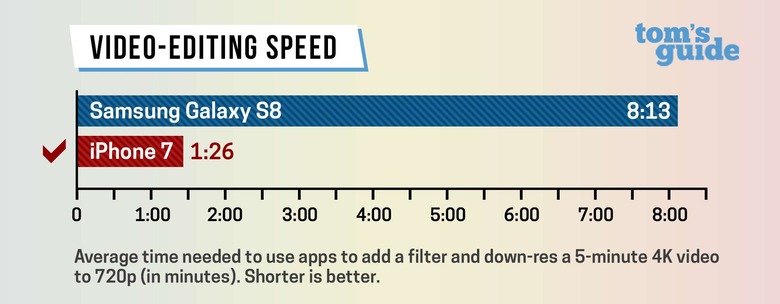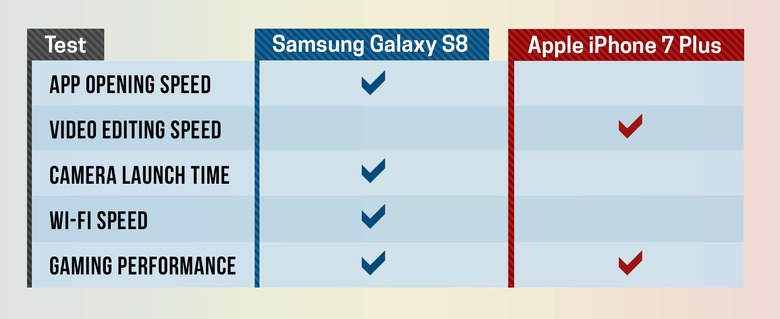Galaxy S8 claimed faster than iPhone 7 in battery of tests
The never ending rivalry between Apple and Samsung always leads to their respective flagship getting compared generation after generation, even if they are launched practically half a year apart. With the Galaxy S8 having reached major markets, the comparisons with Apple's current champ, the iPhone 7, has naturally started. Is the Galaxy S8 faster than the iPhone 7? Does the Qualcomm Snapdragon 835, which was made by Samsung for Qualcomm, have what it takes to unseat the Apple A10 Fusion? Tom's Guide performs five tests to answer that.
Although benchmarks like Geekbench, GFXbench, and AnTuTu give us numbers and reproducible tests to serve as a reference point, real-world performance doesn't usually conform to measure and controlled tests. Stressing the CPU and the GPU to measure their speeds don't always translate to what users experience in their daily usage.
So to more closely match the user's reality, Tom's Guide performed a set of five tests to see how fast each of the phones finish the task. Those include opening 15 apps in succession, editing a 5-minute 4K video, starting the camera app, measuring Wi-Fi performance, and testing game frame rates. In almost all but one case, the Galaxy S8 appeared to have a lead, though small.

That one case was in video editing where the iPhone 7 finished adding a filter and converting the recorded 4K video to 720p in just 1 minute 26 seconds. The Galaxy S8, on the other hand, finished minutes later at 8 minutes 13 seconds. There might be a reasonable explanation for this. "Synthetic" benchmarks like those from Geekbench show that the A10 Fusion is particularly better at single-core performance but lags behind Snapdragons in multi-core tests. It follows that Apple has optimized each and every single A10 core, whereas a Snapdragon is most efficient when all cores are activated.
The Galaxy S8 narrowly beats the iPhone 7 with a few caveats. Its camera app launches slower than the iPhone 7 but, because it focuses faster, still ends up being more usable sooner. And while the iPhone 7 is on near equal footing when it comes to gaming performance, it taxes the CPU and the GPU more to achieve those smooth frame rates. While the results aren't as clean cut as we might have hoped, Samsung does seem to have an advantage for now. At least until the Apple A11 shows up.

VIA: Tom's Guide
